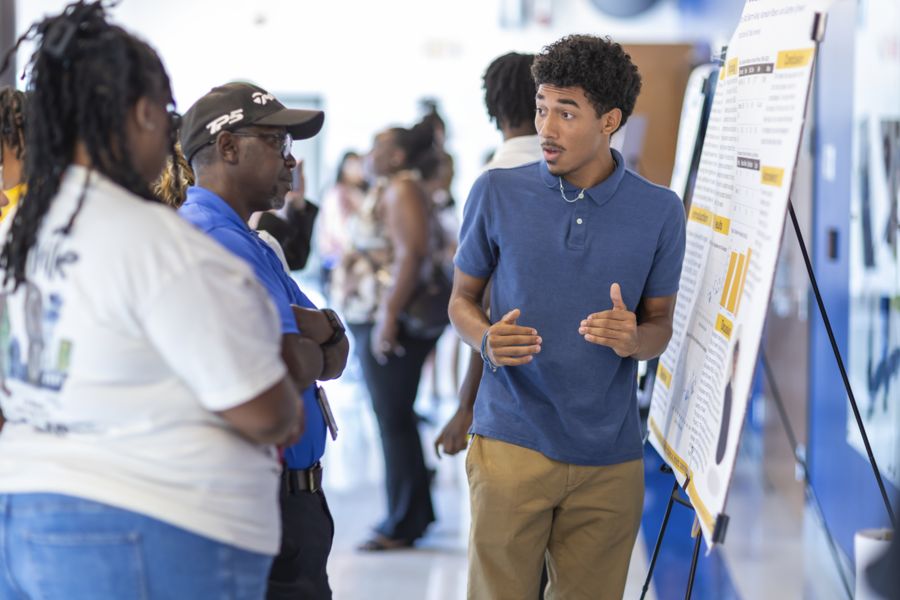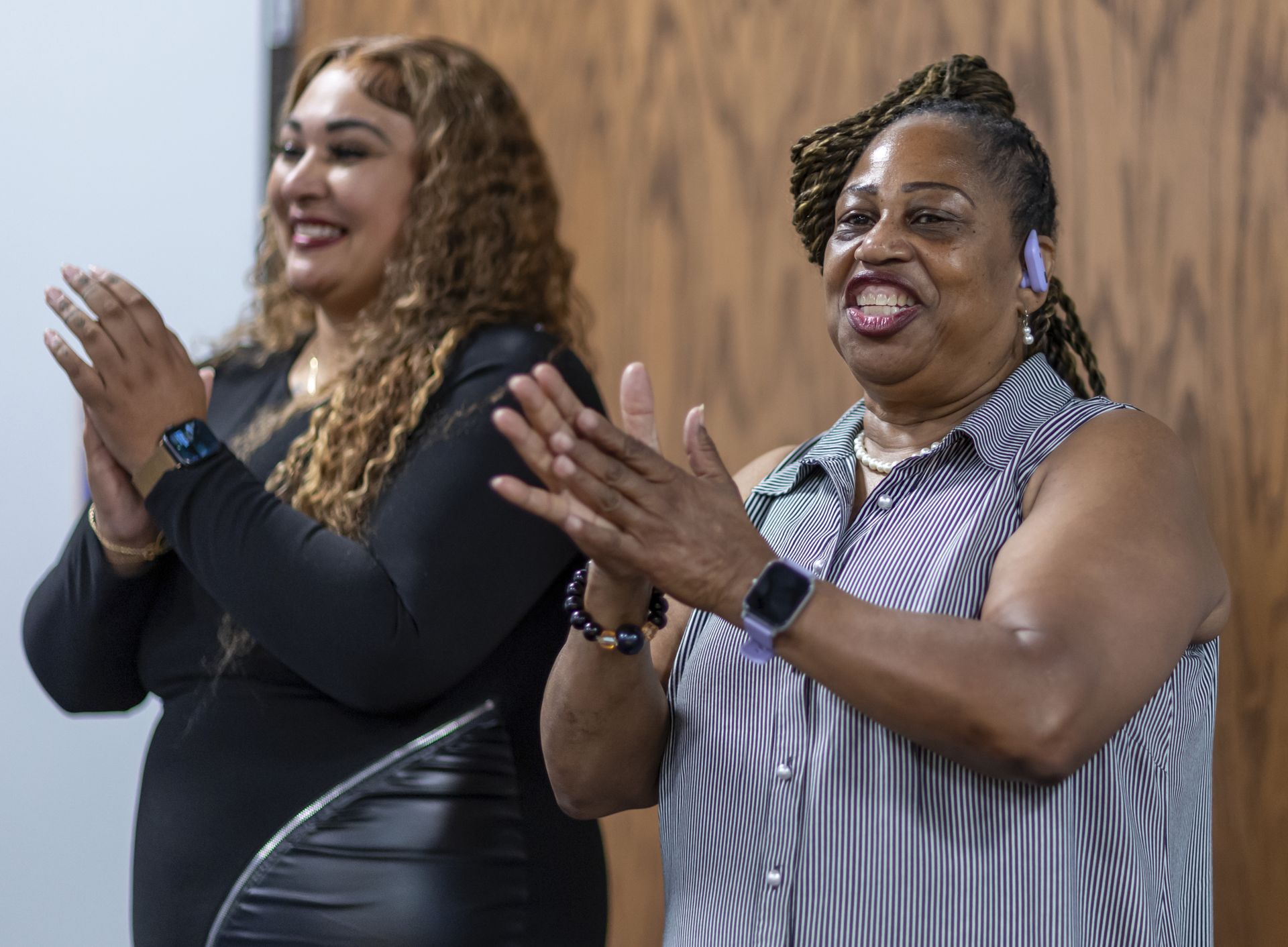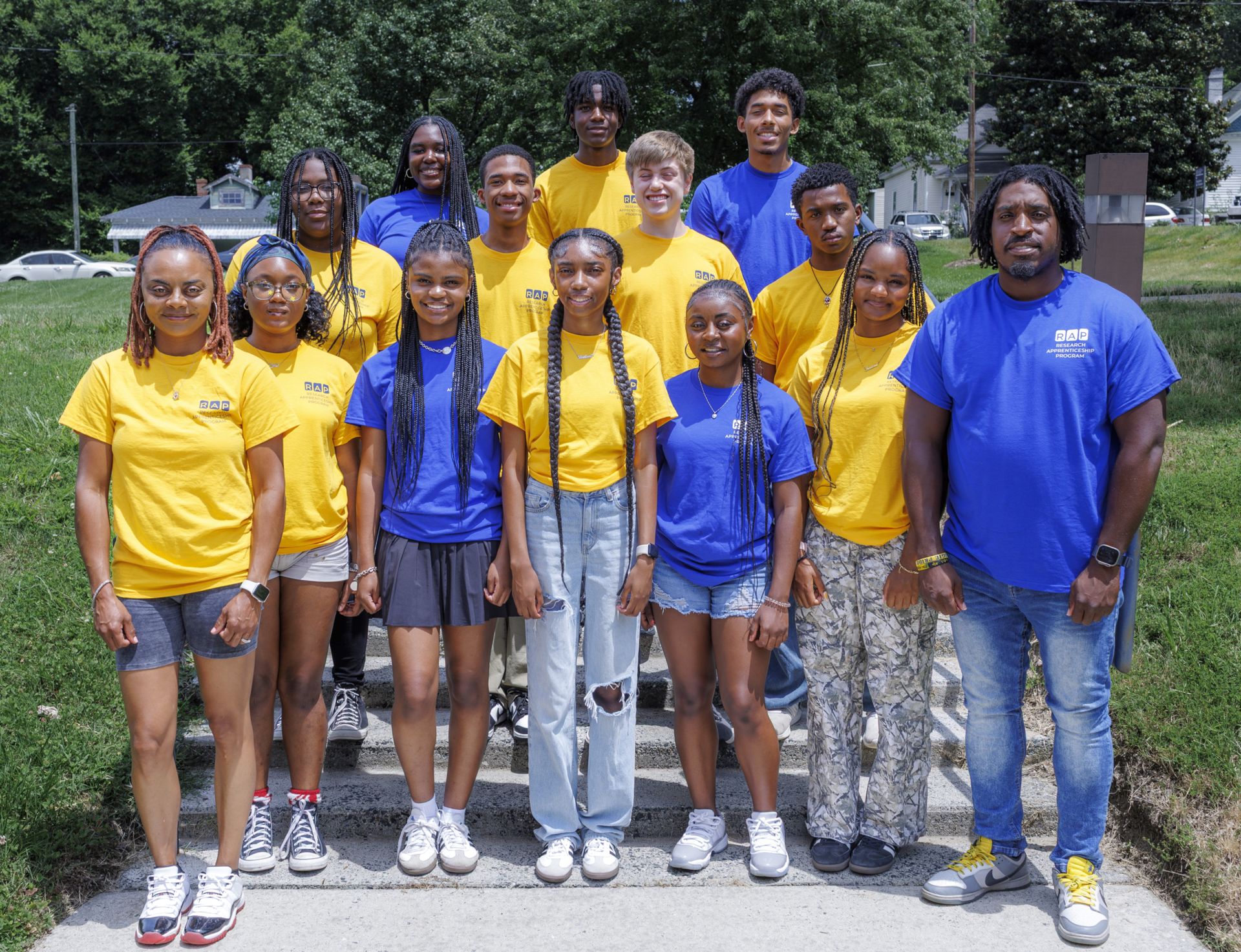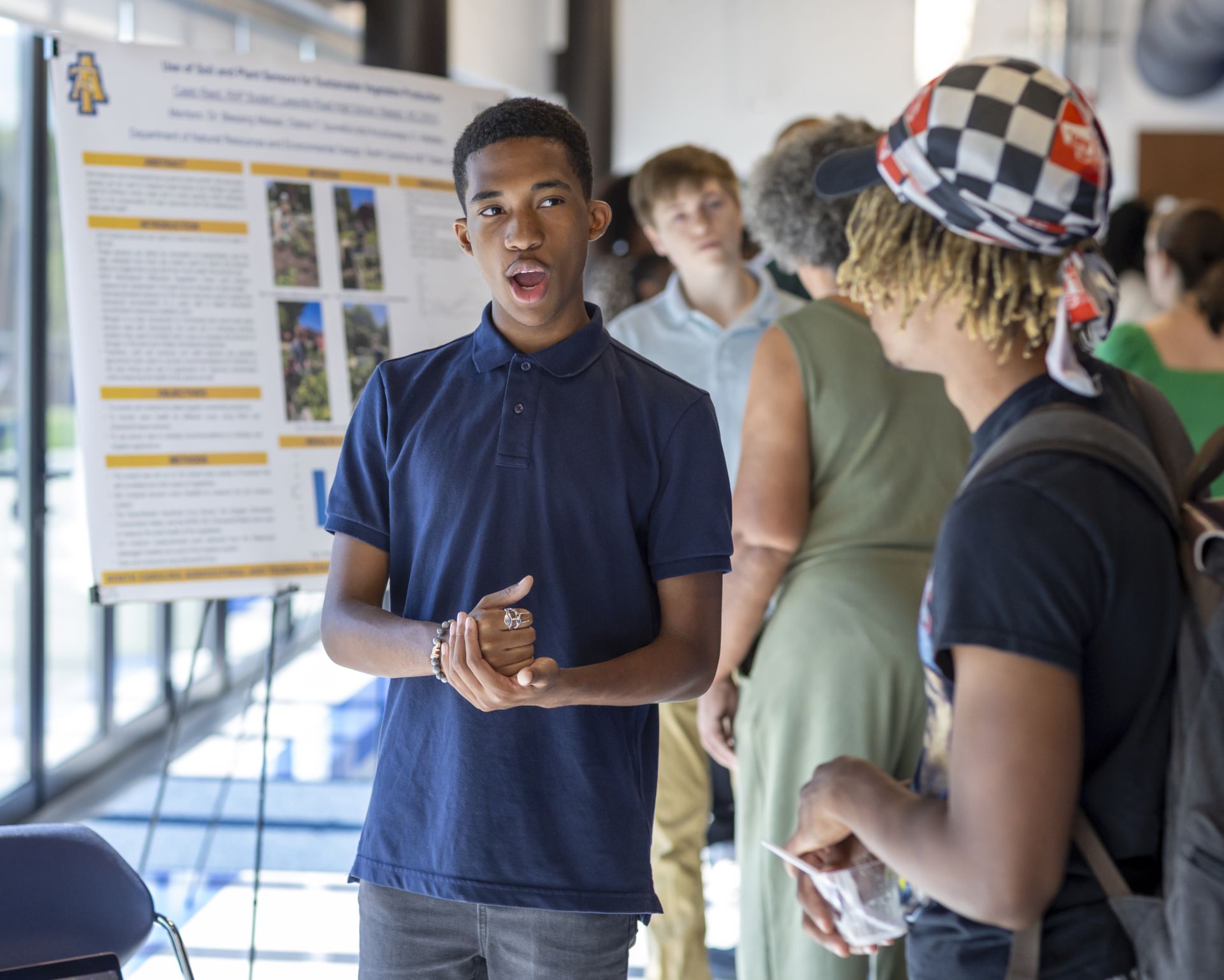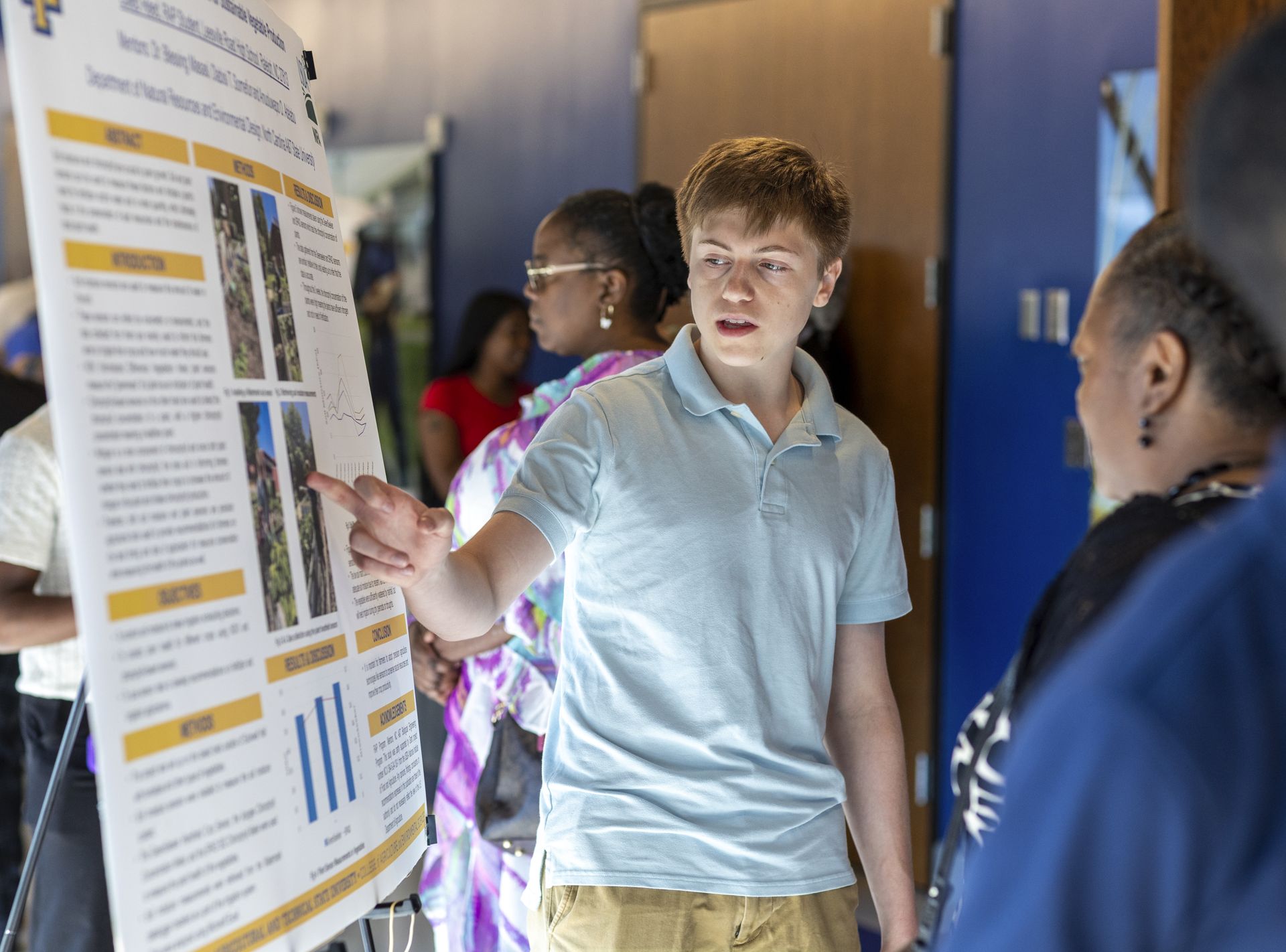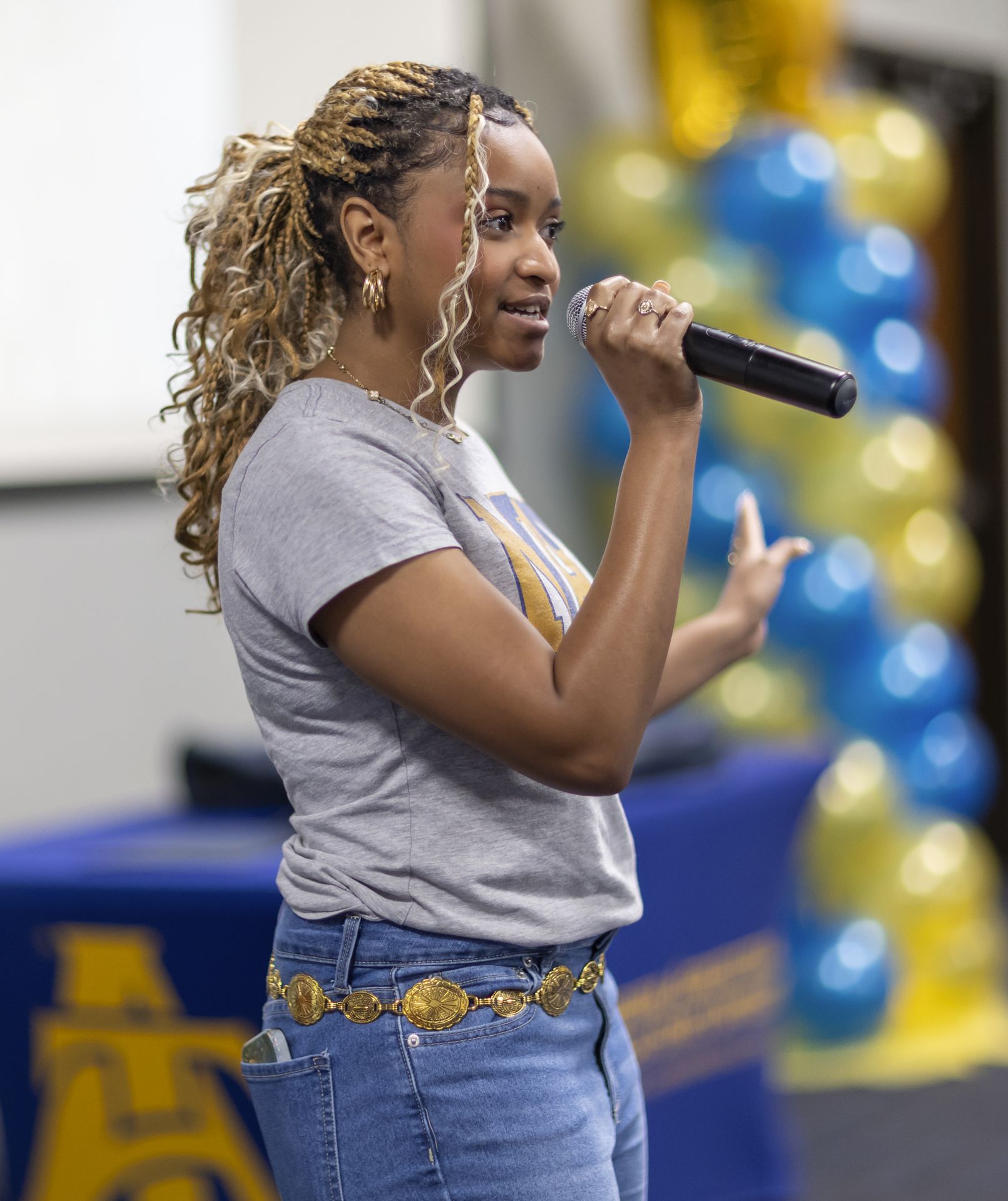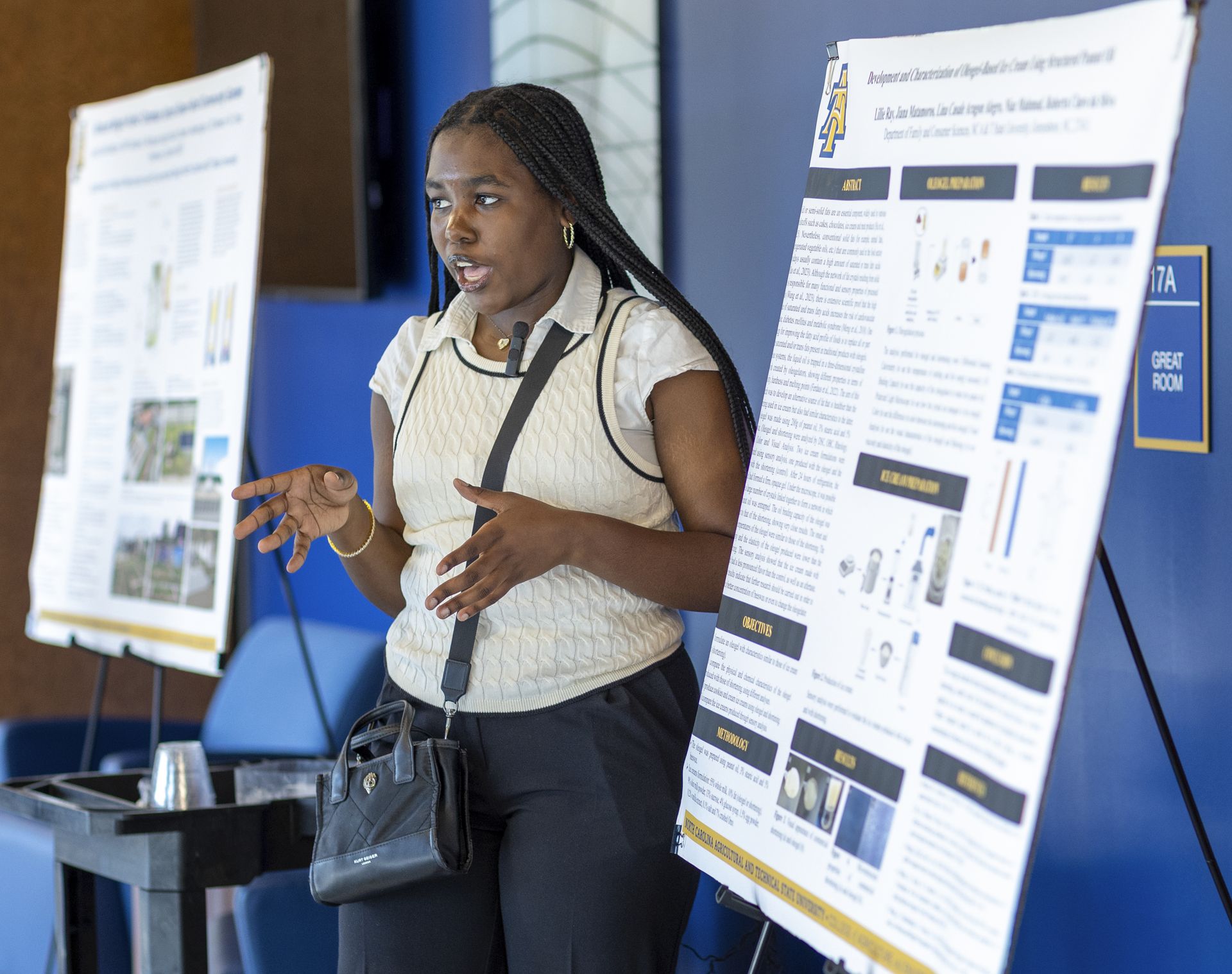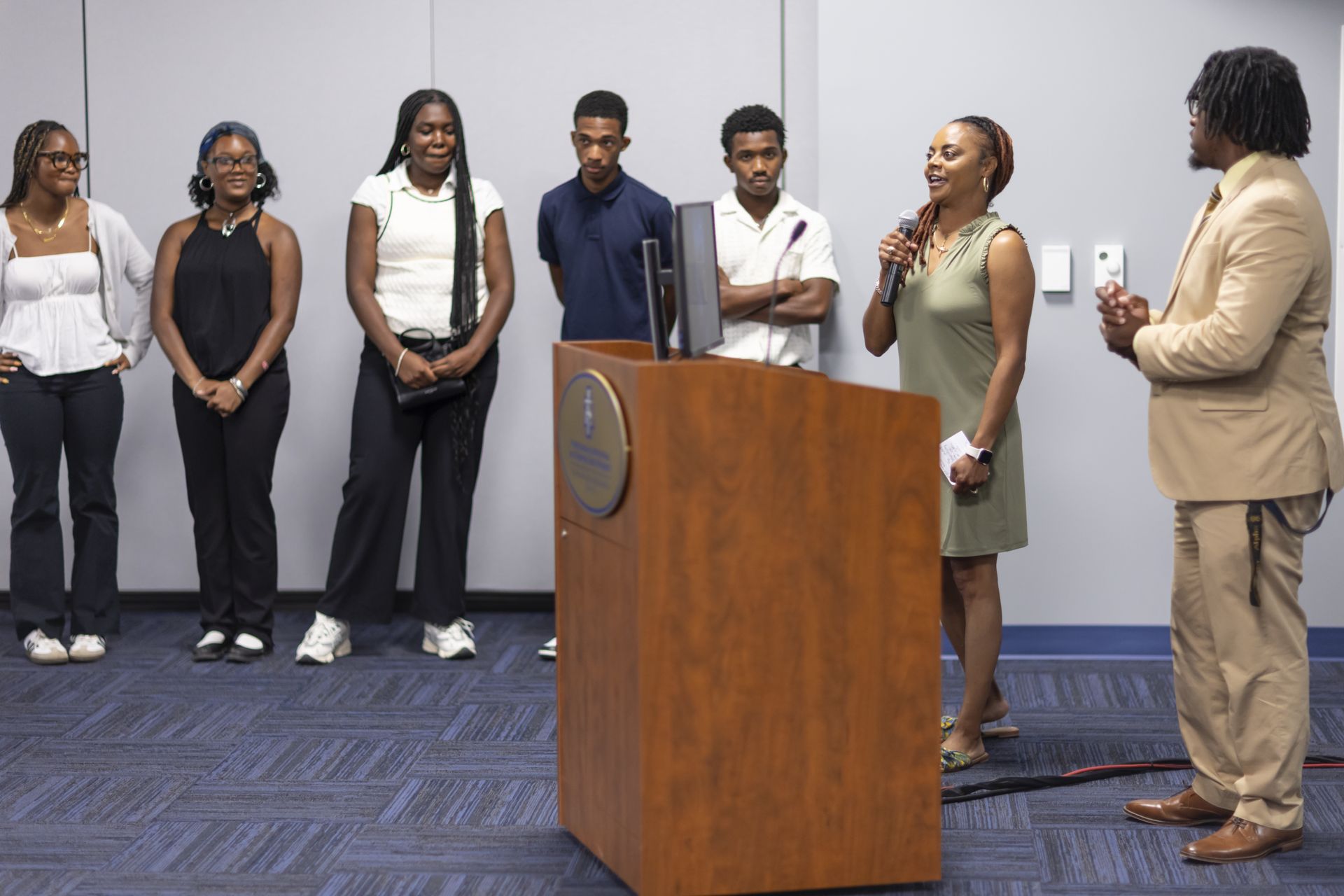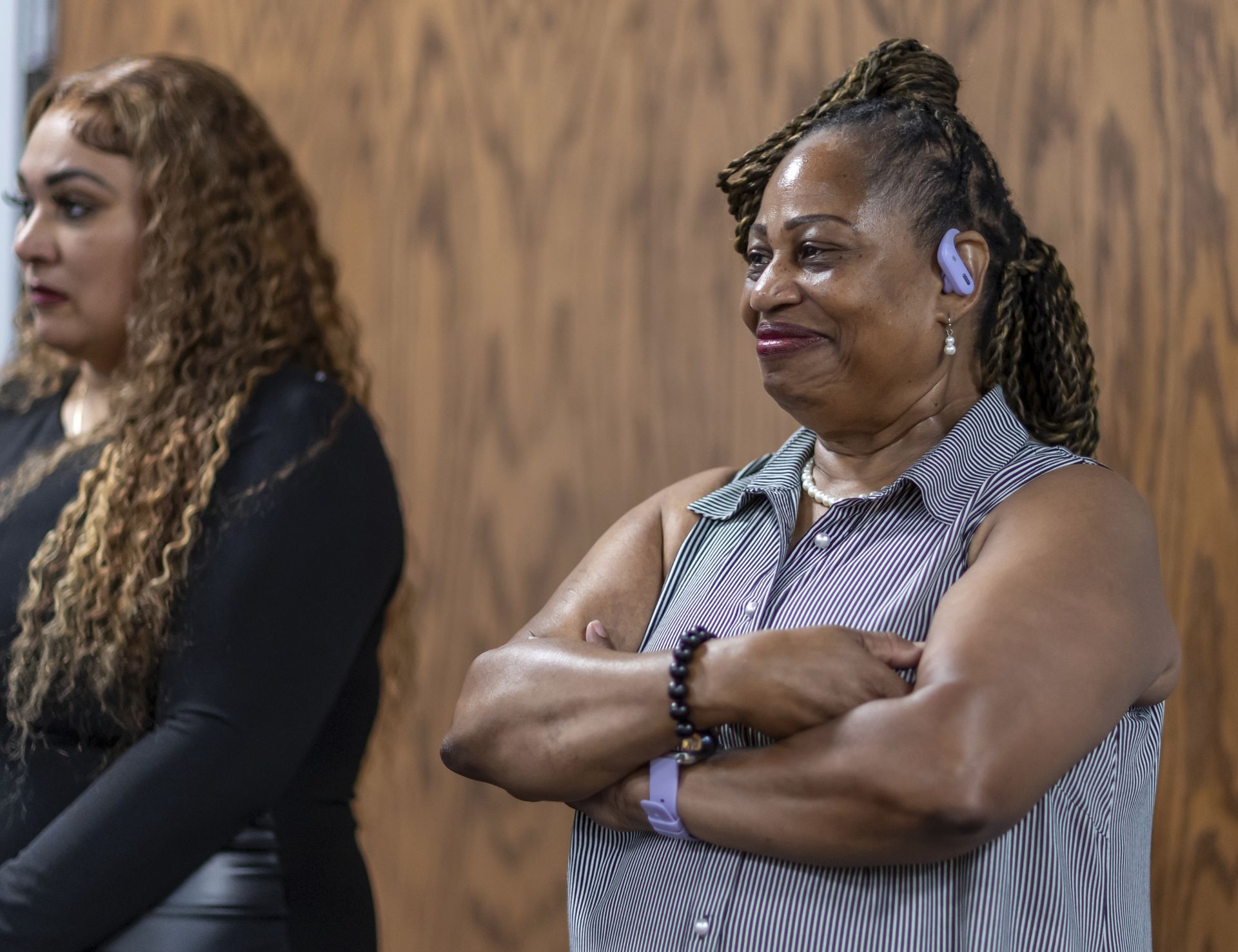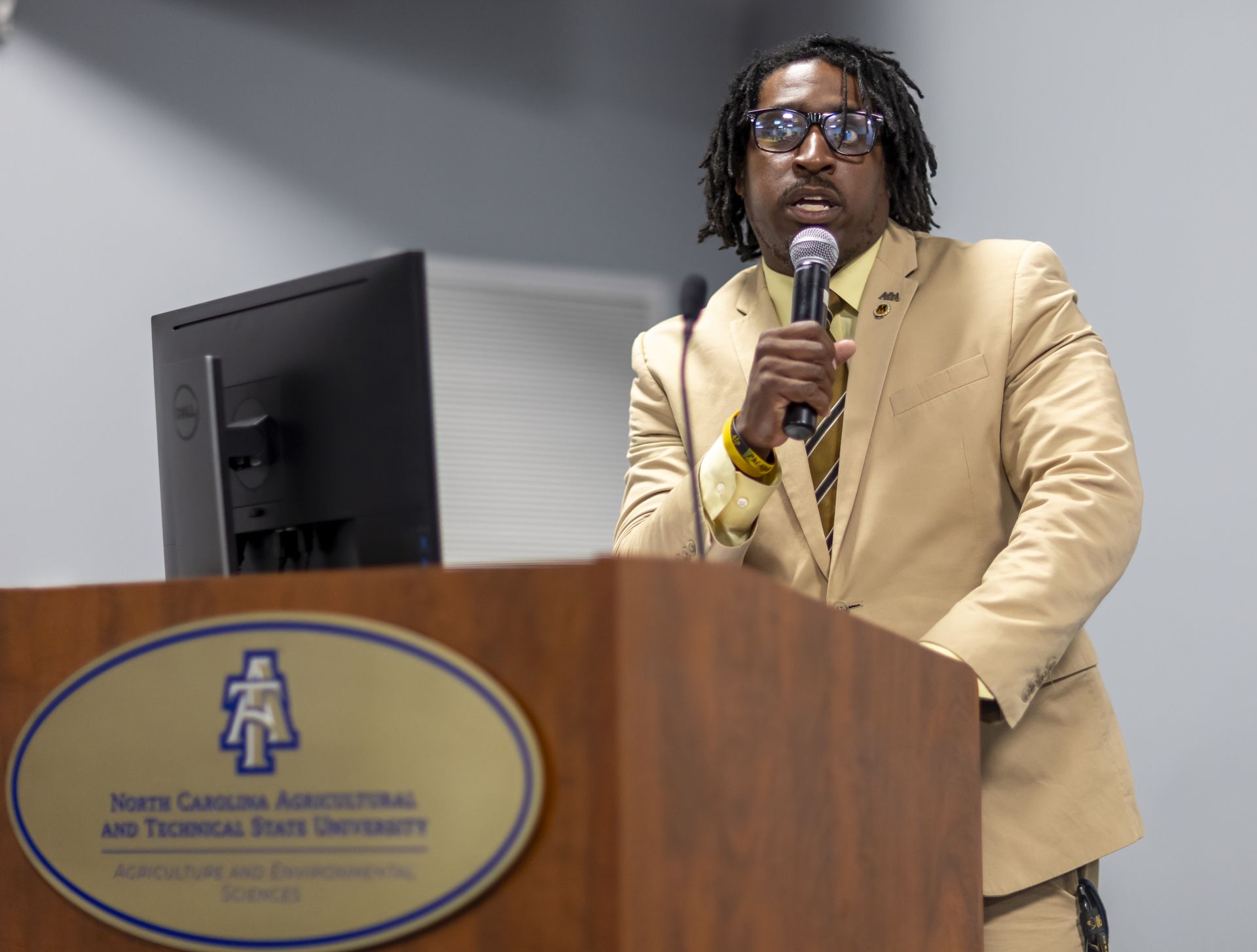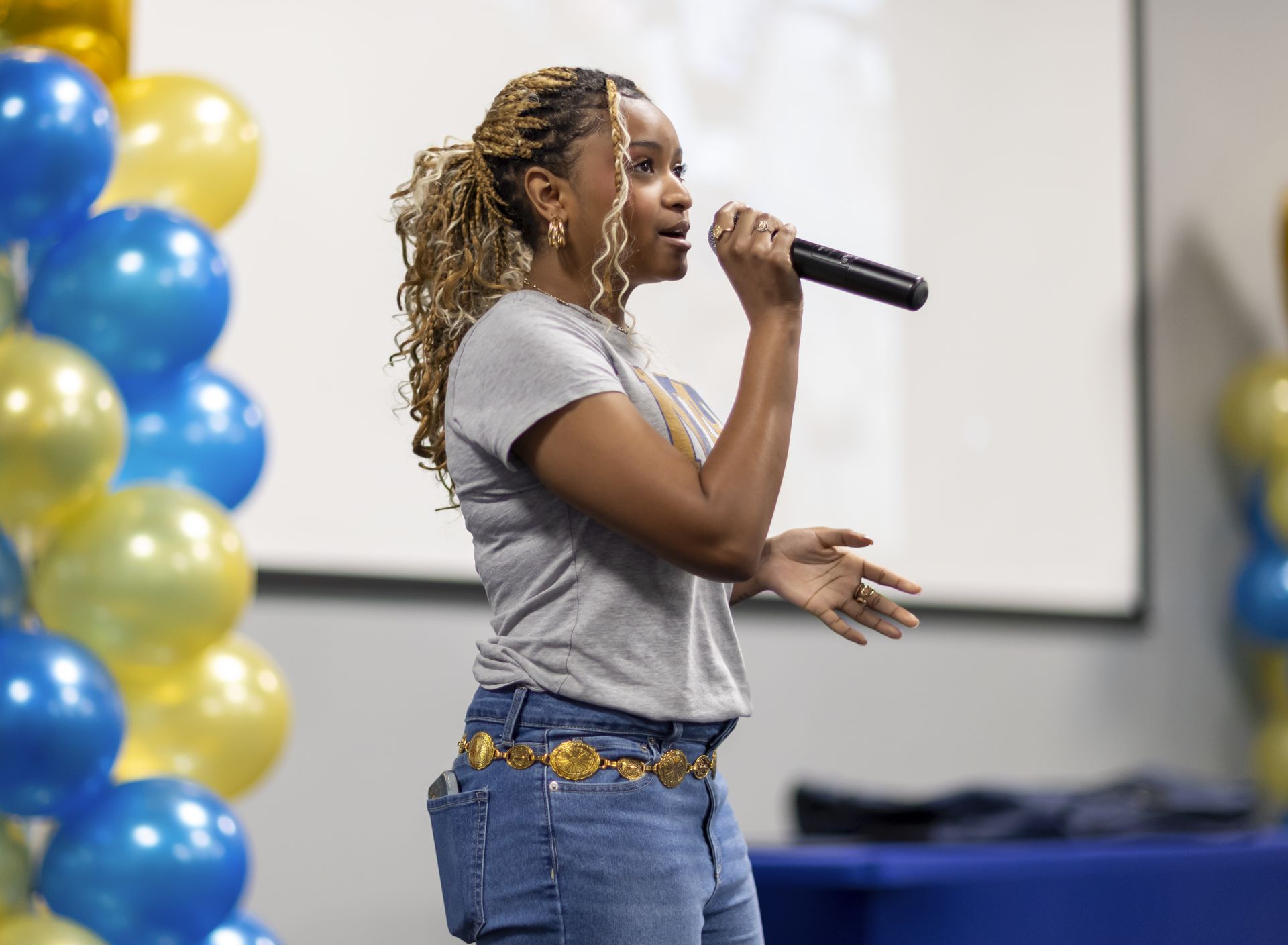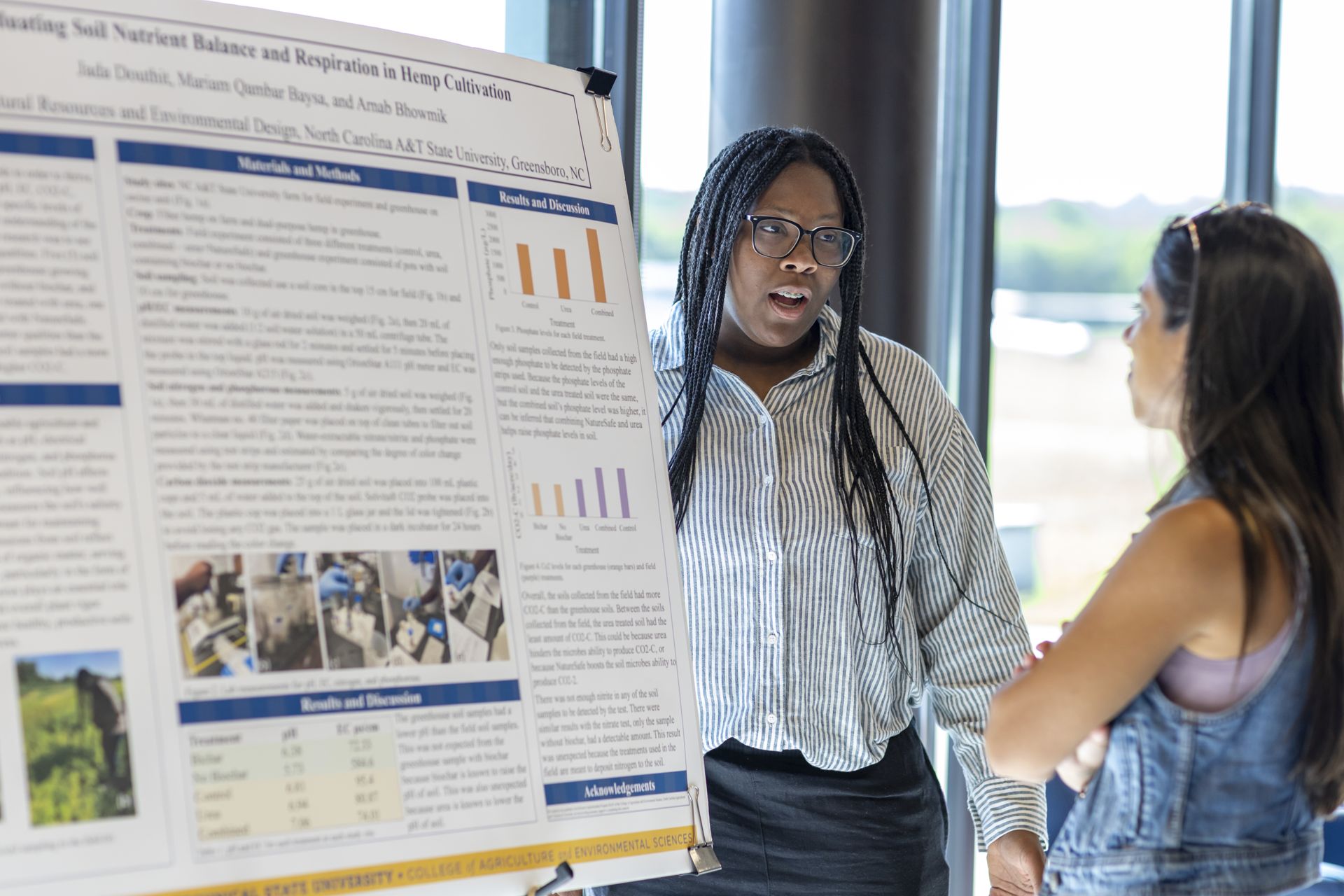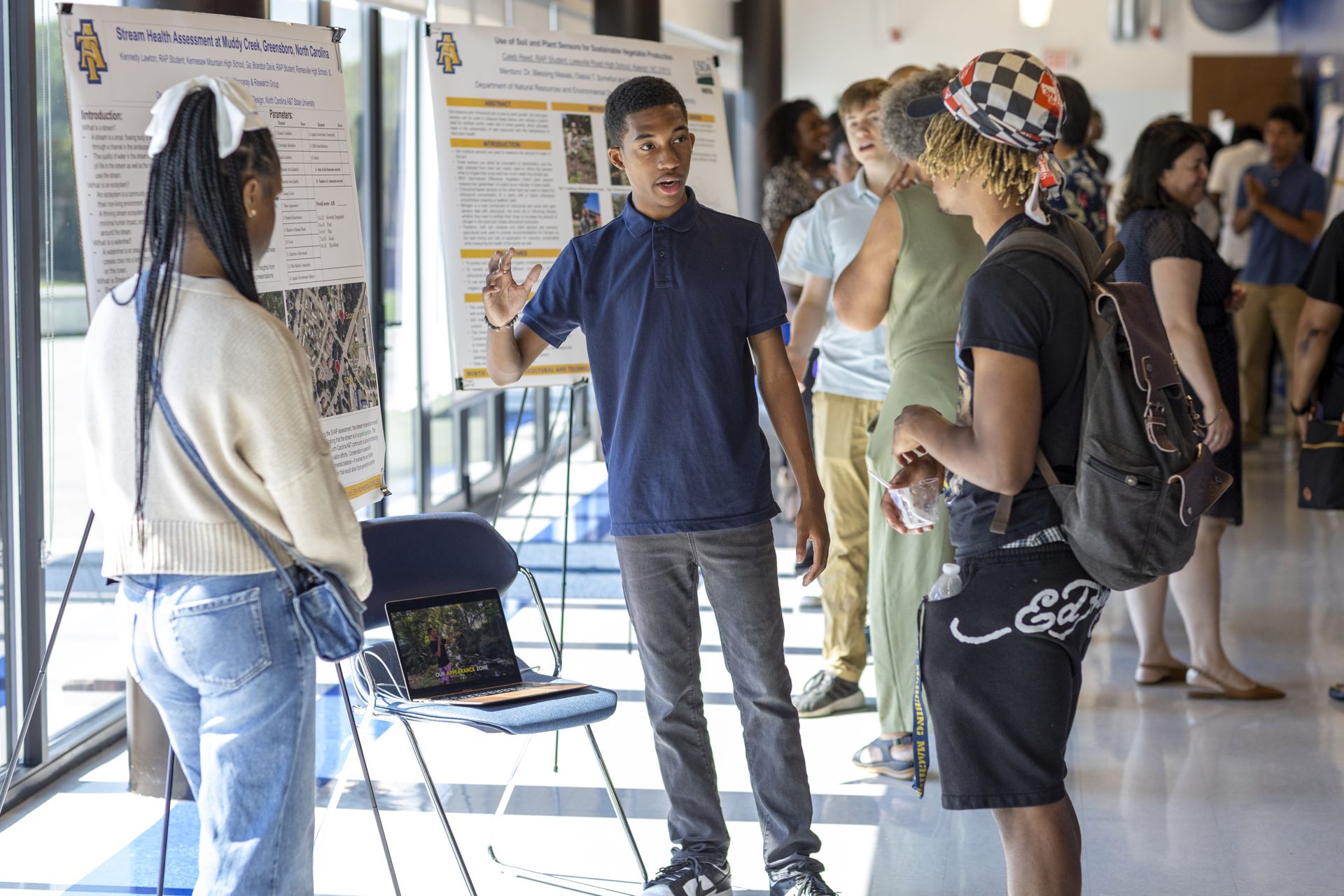Javier Hernandez, rising senior at Long Reach High School in Columbia, Maryland, discusses his Research Apprenticeship Program (RAP) project with parents and friends during the program’s last day. The two-week summer program gives students exposure to life on campus, research projects and new student interactions.
Lillie Ray’s poster presentation at the 2025 Research Apprentice Program at North Carolina Agricultural and Technical State University was pretty sweet — literally.
Lillie, a rising junior at Bishop McNamara High School in Forestville, Maryland, offered samples of two different ice creams, one made with commercial shortening and one made with oleogel, a fat substitute which is seen as a healthier option.
“As you can see here, the aftertaste and the texture weren’t exactly the same for the oleogel,” Lillie said, noting that scientists will have to address that before the oleogel-based ice cream would be ready to sell commercially.
Lillie and 11 other high school students participated in the College of Agriculture and Environmental Sciences’ program in June. RAP is an intensive, two-week research and campus-life experience in which students take part in professors’ current projects.
“Students that have come through the RAP program — we have lawyers, veterinarians, doctors, teachers, scientists, business folks, you name it,” said Antoine Alston, Ph.D., the associate dean of academic studies in the college.
“We have people all across the world that come through this RAP program,” he added, noting that the program began in 1989.
Though skeptical at first, Lillie found the program fun and helpful. “I learned to come out of my shell more and became more experienced,” she said.
Tyler Cole, a rising junior at Knightdale High School in Knightdale, who worked on meat nutrition and analysis, also praised the program.
“I got to meet new people,” Tyler said. “I get to present the work that I worked on and I’m growing as a person.”
Unity Walters, a rising junior at Eastern Guilford High School in Gibsonville, researched ways to help children learn science, technology, engineering and mathematics (STEM) and encourage family engagement.
She said RAP gave her a “little bit of everything.”
“You get to have fun and get some learning in — learning something that’s enjoyable to you and something that you like to do,” Unity said.
Kennedy Lawton, a rising senior at Kennesaw Mountain High School in Kennesaw, Georgia, and Brandon Davis, a rising senior at Romeoville High School in Romeoville, Illinois, worked together on their project assessing the health of Muddy Creek near the A&T campus.
“In these short two weeks. I learned so much about things I didn’t know,” Brandon said. “But also on a community basis, I met so many good people. … I met so many like minds.”
Kennedy agreed, adding that personally working with the professors on their projects was helpful.
“Getting the experiences firsthand, learning how to do this the right way, was very important,” she said. “We have been told from several people here that research projects are a big part of being a STEM major, so it was nice to dip our toes in the water and really be ahead of the game.”

